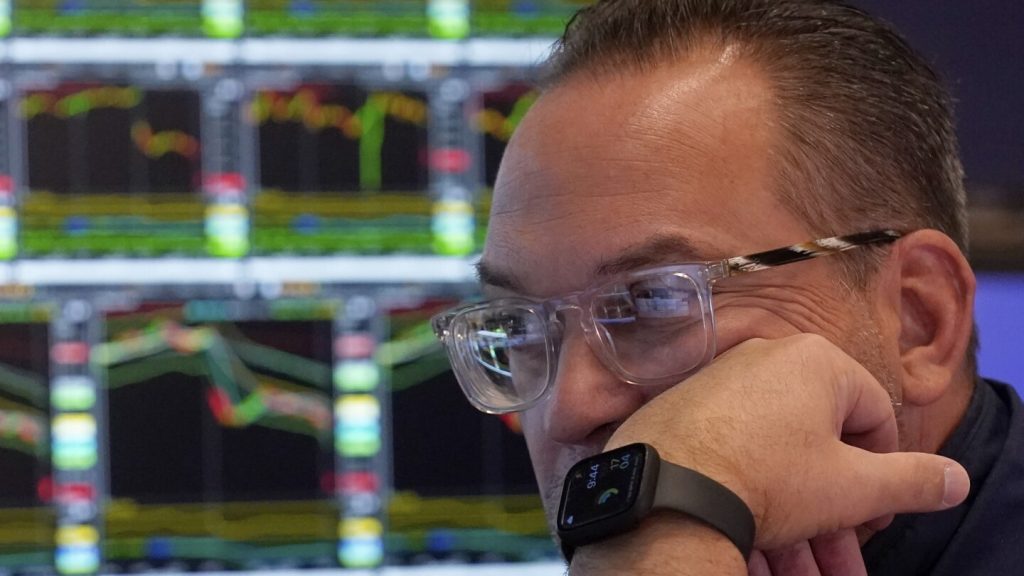Global Stock Markets Plummet Amid Trade War Escalation
NEW YORK (AP) — Global stock markets continued to decline sharply on Friday after China mirrored President Donald Trump’s significant increase in tariffs, intensifying a trade war. A positive report on the U.S. job market, which usually draws attention, did little to stem the downturn.
The S&P 500 index dropped 4.8% during afternoon trading, having previously sunk over 5%, marking its worst performance since the COVID-19 pandemic devastated the global economy in 2020. As of 1:08 p.m. Eastern time, the Dow Jones Industrial Average was down 1,719 points, or 4.3%, while the Nasdaq composite fell 4.9%.
Financial markets are largely reeling without any clear winners emerging from the trade conflict. European stock markets experienced some of the most significant declines, with indexes plummeting over 4%. The value of crude oil fell to its lowest point since 2021, and other key commodities, like copper, saw price drops amid fears that the ongoing trade war will damage global economic growth.
China’s Retaliation Sparks Further Losses
China’s reaction to U.S. tariffs triggered a swift escalation in market losses around the globe. The Chinese Commerce Ministry announced plans to counteract the 34% tariffs imposed by the U.S. on its products by instituting a matching 34% tariff on all imports from the U.S., effective April 10. The U.S. and China are recognized as the world’s largest economies.
Although the release of the U.S. jobs report—indicating that hiring rates exceeded economists’ expectations—initially provided some relief to the markets, the overarching sentiment was still one of concern regarding future developments.
Long-Term Economic Implications
Rick Rieder, the chief investment officer for global fixed income at BlackRock, pointed out the shifting economic landscape. The critical question remains whether the trade conflict will lead to a global recession, which could necessitate further declines in stock prices, especially as the S&P 500 has already dropped about 16% from its peak in February.
Despite the chaos, Trump appeared unfazed, enjoying his time at Mar-a-Lago while suggesting via social media that “THIS IS A GREAT TIME TO GET RICH.” Much will hinge on the longevity of Trump’s tariffs and potential retaliations from other nations. Some on Wall Street remain optimistic that negotiations may lead to tariff reductions, but if they don’t, many analysts predict an economic downturn is likely.
Market Reactions and Future Outlook
Trump has acknowledged that Americans might experience “some pain” due to tariffs but believes the long-term objective of bringing back manufacturing jobs is worthwhile. He compared the current situation to a medical procedure, viewing the U.S. economy as the patient undergoing treatment. Brian Jacobsen, chief economist at Annex Wealth Management, remarked that the experience for investors could feel like surgery without anesthetic.
Investors are left contemplating how swiftly tariffs might be negotiated down. Vietnam’s deputy prime minister plans to travel to the U.S. for trade discussions, while the head of the European Commission has pledged to retaliate. Trump criticized China’s response, asserting on his Truth Social platform that “CHINA PLAYED IT WRONG, THEY PANICKED – THE ONE THING THEY CANNOT AFFORD TO DO!” Stocks of companies reliant on Chinese markets saw some of the sharpest declines.



